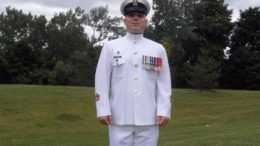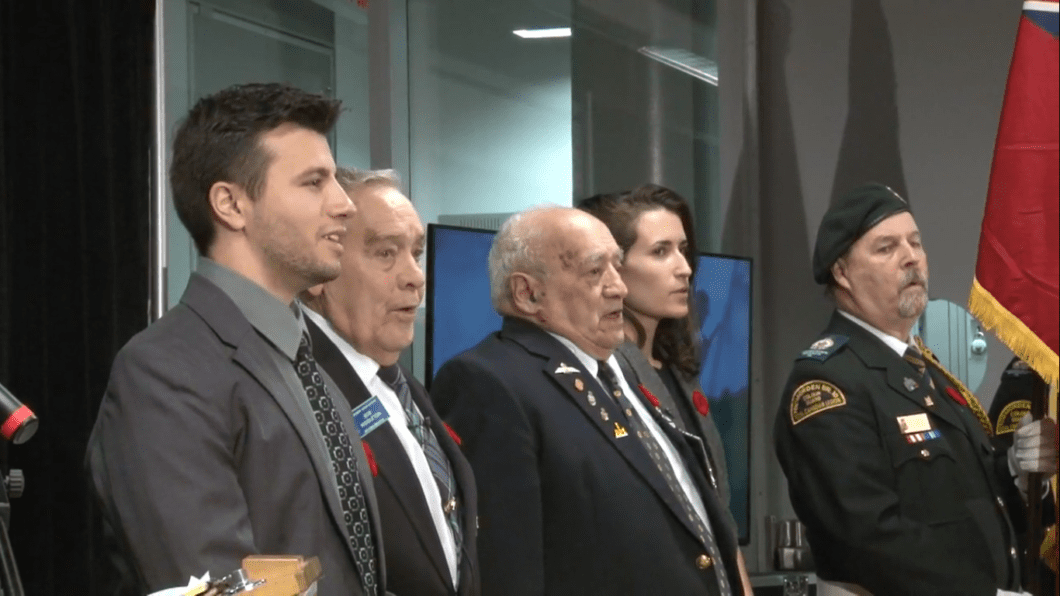Where would Canada be without patriotism?
Centennial College’s Story Arts Centre hosted a Remembrance Day service last Friday, where students, faculty, and community members alike came together to listen to the testimonies of two Second World War veterans and one current sub-lieutenant in the Royal Canadian Navy, currently in his 23rd year of active service.



